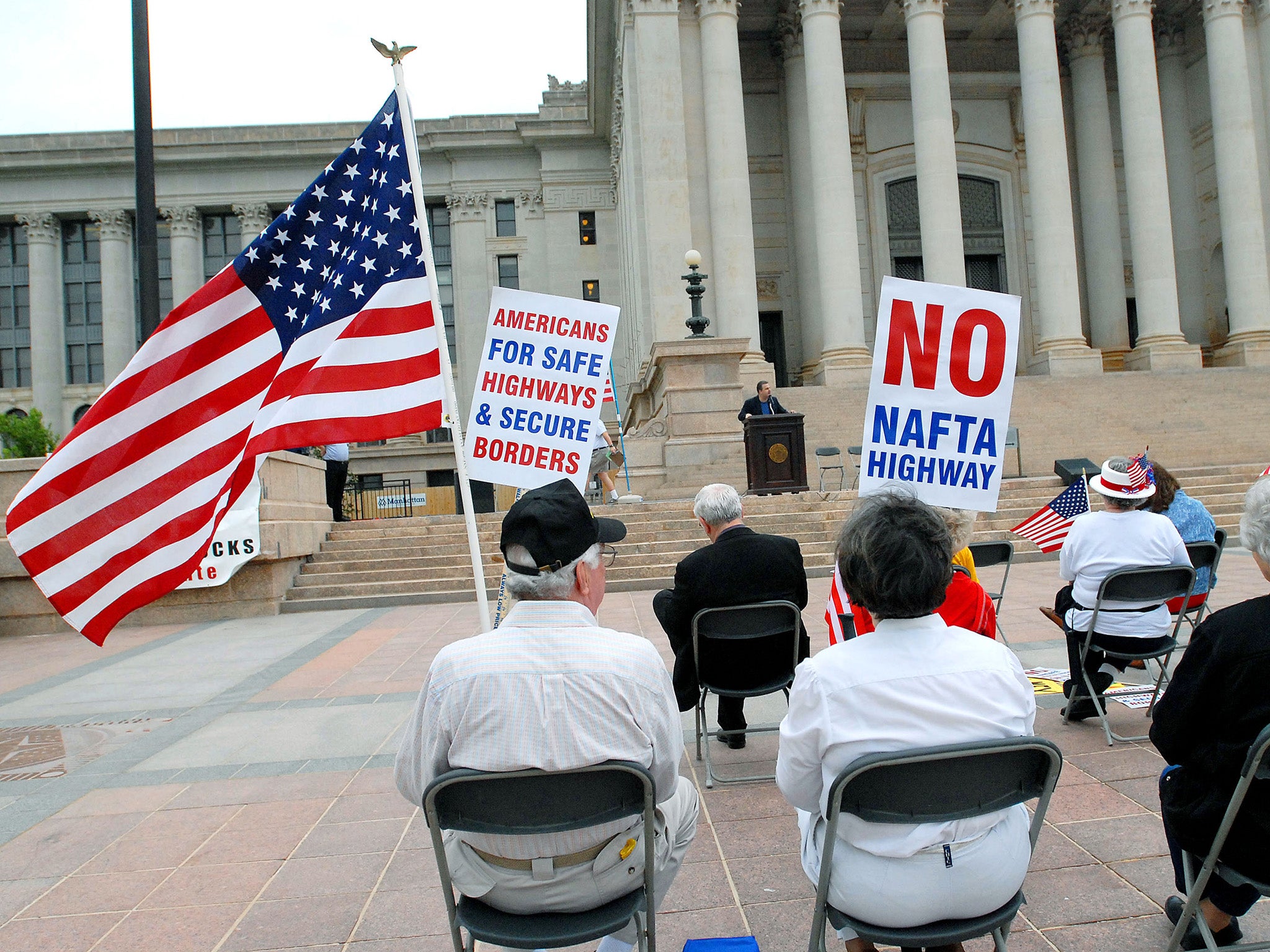Canada and Mexico willing to open 'dialogue' with Donald Trump amid fears Nafta is in jeopardy
Canadian ambassador says the country is willing to renegotiate, while Mexico warns it could form a new trans-Pacific partnership without the US if necessary

Your support helps us to tell the story
From reproductive rights to climate change to Big Tech, The Independent is on the ground when the story is developing. Whether it's investigating the financials of Elon Musk's pro-Trump PAC or producing our latest documentary, 'The A Word', which shines a light on the American women fighting for reproductive rights, we know how important it is to parse out the facts from the messaging.
At such a critical moment in US history, we need reporters on the ground. Your donation allows us to keep sending journalists to speak to both sides of the story.
The Independent is trusted by Americans across the entire political spectrum. And unlike many other quality news outlets, we choose not to lock Americans out of our reporting and analysis with paywalls. We believe quality journalism should be available to everyone, paid for by those who can afford it.
Your support makes all the difference.Canada and Mexico have said they are willing to open a "dialogue" about the Nafta trade deal amid fears it is in jeopardy following the election of Donald Trump as US president.
On the campaign trail, Mr Trump vowed to scrap the free trade agreement between the three nations which he and millions of voters believe led to the decline of manufacturing jobs in the US and the influx of immigrants from Mexico.
On Thursday, Canadian prime minister Justin Trudeau said he was “more than happy” to talk about the North Atlantic Free Trade Agreement with Mr Trump. A day earlier, Canada's ambassador to the US, David MacNaughton, also said a renegotiation was possible.
Mr MacNaughton also played down fears any scrapping of Nafta would mean the end of free trade between the two nations because in that case they would be bound by the terms of the 1987 Canada-US Free Trade agreement which was superseded by the three-way pact in 1993.
Sources close to the Ottawa government said they believed there was only a small chance that Mr Trump would move to dismantle Nafta, since changes would require cooperation from pro-business Republicans in Congress.
"He has other priorities, such as ending illegal immigration. Is he really going to burn up political capital on a step that could damage the economy?" said the person, who requested anonymity because of the sensitivity of the situation.
Meanwhile Mexican Economy Minister Ildefonso Guajardo said they were willing to discuss the importance of the agreement with Mr Trump.
He insisted they were not discussing renegotiation but instead opening a “dialogue” about all the deal has done for the three countries since its inception.
He said: "We're ready to talk so we can explain the strategic importance of Nafta for the region.
“Here we're not talking about ... renegotiating it, we're simply talking about dialogue.
"Today the world is not competing by country, it's competing by region".
But Mr Guajardo also warned that Mexico was prepared to circumvent the US to form a broader trans-Pacific trade deal if necessary.
It comes as senior Democrat senator Charles E Schumer said the Trans-Pacific Partnership trade deal – which would supersede Nafta – is “dead” following Mr Trump’s election.
The New York politician, who is expected to become the Senate’s next minority leader, said there is no way the unpopular trade deal with several Pacific-Asian nations would be ratified by Congress.
Speaking in June economic address, Mr Trump said: “There is no way to fix the TPP.
“We need bilateral trade deals. We do not need to enter into another massive international agreement that ties us up and binds us down.”

This means the Trump Administration will be able to drop the deal along with the Transatlantic Trade and Investment Partnership – or TTIP – which is currently being negotiated with the European Union.
Mr Trump has made a big show of his opposition to the country's current free trade deals saying in the past the US has hired “stupid” negotiators who failed to see the loopholes foreign officials had inserted into their terms.
According to the businessman, this allows them to steal manufacturing jobs and flood the US with the immigrants they don’t want in their own countries – such as “rapists and murders” in the case of Mexico.
Additional reporting by agencies
Join our commenting forum
Join thought-provoking conversations, follow other Independent readers and see their replies
Comments